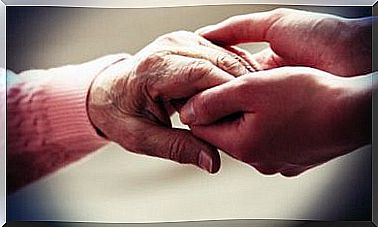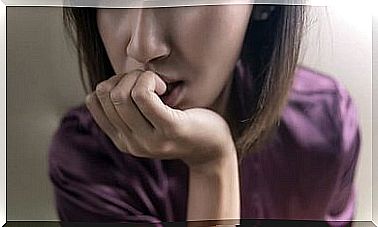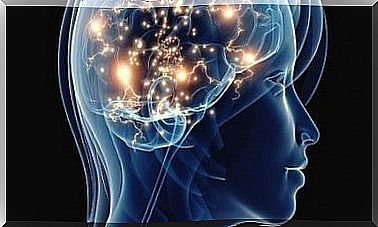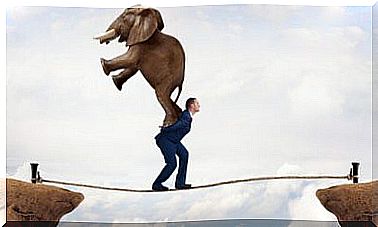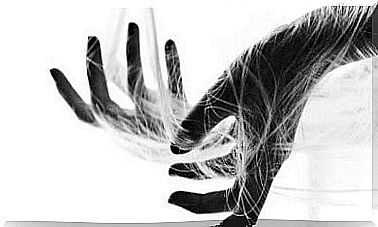What Happens When We Don’t Get Enough Sleep?

Spending the day sleepy is a terrible feeling, but what actually happens to the mind and brain when we don’t get enough sleep?
American Randy Gardner has a record for the longest period of intentional sleep deprivation, scientifically documented.
Without the help of stimulants, he managed to stay awake for 264.4 hours, or 11 days and 24 minutes!
Part of his motivation was to demonstrate that lack of sleep isn’t bad, but he was wrong: too little sleep hurts too much! He suffered from paranoia, hallucinations, mood swings, and a host of psychological problems that we’ll describe below.
In fact, he didn’t realize that many of the problems that plagued him were a result of lack of sleep.
10 Psychological Effects and Health Risks Associated with Lack of Sleep
1. Sleeping too little makes the brain less efficient
Brains that are sleep deprived are not efficient and need to work harder to achieve the same results. This has been demonstrated in neuroimaging research, which shows that the brains of sleepless people need to pump more blood to the prefrontal cortex, seeking to counter the effects of sleep deprivation.
2. Short-term memory is reduced
Sleeping little causes our memory to fail. Without short-term memory, a person cannot even keep a few digits of a phone number in mind, let alone perform some complex operation. Therefore, when a person is sleep deprived, he tends to be forgotten.
The man who had gone the most days without sleep, Randy Gardner, was asked several times to do a simple subtraction. He didn’t, arguing that he didn’t know what they were asking of him.
3. Sleeping too little causes long-term memory loss
Sleep also plays an important role in long-term memory consolidation. While we sleep, our new brain orders are incorporated and make sense of things that have happened. Not only that; learning is also consolidated while we sleep.
4. Loss of attention
A person usually has a good attention span: he can distinguish one voice among many, see small objects, identify things that move in a sea of visual information. However, little sleep means that your attention will be depleted much more quickly. Without enough sleep, we cannot pay as much attention to the senses as we would like.
This brings, in part, this strange sense of distraction that we experience when we are tired.
5. Without sleep it is not possible to plan
After 36 hours without sleep, the ability to plan and coordinate our actions begins to fail.
Evidence shows that the fundamental ability to decide when and how to start or stop any activity rapidly diminishes with lack of sleep. Too little sleep significantly increases the inability to make decisions.
6. Bad sleep habits increase
From bed, there is little difficulty making plans or controlling how to initiate or stop actions, and the brain’s automated systems are resorted to. By this I mean: habits.
With less sleep, we rely on repeating actions in the same situations. This news can be positive when it comes to good habits, but what if the habits are bad and need to be adapted?
7. Sleeping little is more risky
Anyone who has played a game of poker late into the night knows the strange effects of tiredness on their risk assessment.
Research using card games has found that with few hours of sleep, players stick to a strategic routine. They seem unable to change their game plan based on experience. Losing sleep involves taking risks, and sometimes it would be better to have the clarity to make the decision to stop.
8. The death of brain cells
Different research has shown that not sleeping kills cells and causes brain damage. A recent study in rats found that about 25% of brain cells die due to prolonged lack of sleep. Other studies have found that there is a loss of white matter integrity in the brain, probably due to lack of sleep.
Sleeping little is not good psychologically or physiologically.
9. The delusions appear
If a person suffers from lack of sleep on a regular basis, he begins to experience delusions. Symptoms include psychosis, paranoia, extremely high levels of life energy, hallucinations, aggression and more.
Important links have been discovered between insomnia and mental illness. Unfortunately, mental illness itself can, in turn, cause insomnia.
There are different opinions on how to cure insomnia without drugs, such as assessment methods and cognitive-behavioral intervention.
10. Sleeping little increases accidents
One of the things that scare you about lack of sleep is that waking hours add up over time and you feel overwhelmed.
If you lose an hour or two of sleep every night, you may not realize that this has a detrimental effect over time. Surveys say that people who are driving and who sleep very little do not realize the seriousness of the problem.
Sleeping little or staying up all night and driving can be worse than driving while intoxicated. The effects are similar, but the driver is less aware.
After 11 days without sleep…
After being awake for 11 days, Randy Gardner said he had slept more than 14 hours the first night, 10 hours the next night, and then fully recovered.

